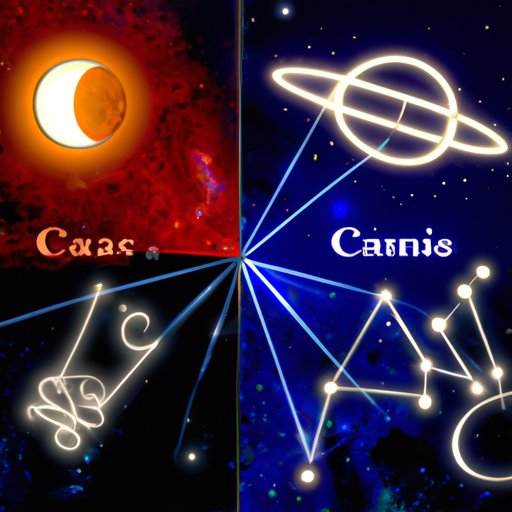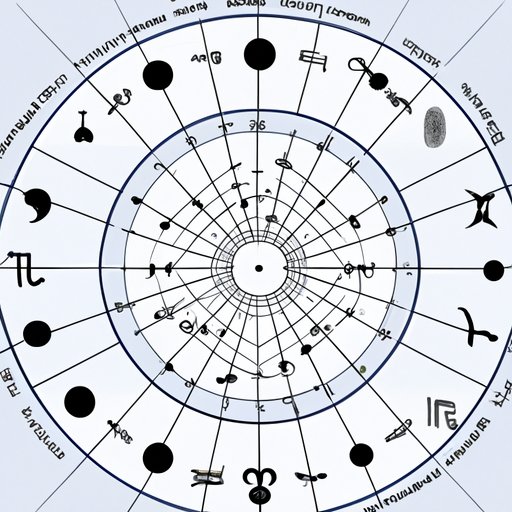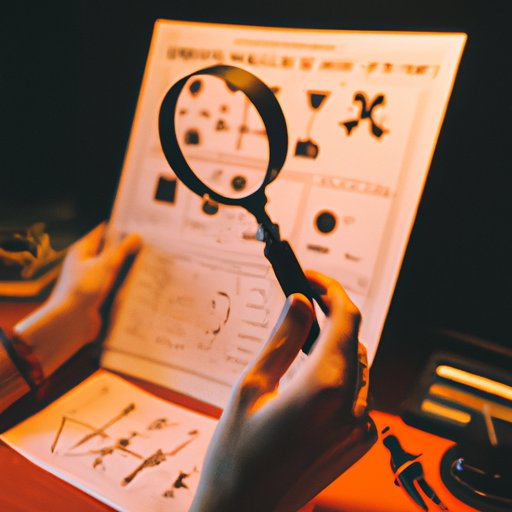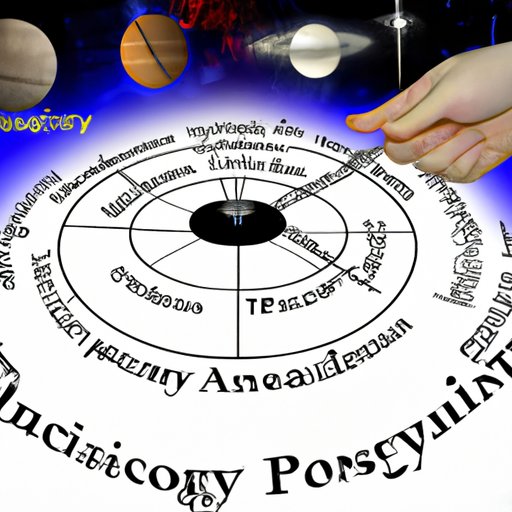Introduction
Astrology is an ancient practice that has been used for centuries to interpret the alignment of planets and stars in order to gain insight into people’s lives. Despite its popularity, however, astrology has not been recognized as a true science due to its lack of scientific evidence to support its claims. This article will explore why astrology is not a science by examining the lack of scientific evidence to support astrological claims, comparing and contrasting astrology with real sciences like physics and chemistry, analyzing the historical roots of astrology and its lack of development over time, exploring the difficulties in testing astrological theories, investigating the claims made by astrologers and comparing them to scientific theories, and discussing the implications of believing in astrology for personal decision making.
Examining the Lack of Scientific Evidence to Support Astrological Claims
The primary reason why astrology is not considered a science is because of its lack of scientific evidence to support its claims. In fact, there has been very little research conducted on astrology and what research has been done has generally yielded inconclusive results. For example, a 2020 study published in the journal Frontiers in Psychology found that “there is no compelling evidence to support the validity of astrological predictions.”
In addition to the lack of scientific evidence to support astrology, it is also important to consider the validity of astrological claims. While some astrologers may make predictions based on their interpretations of the alignment of planets and stars, these claims are highly subjective and cannot be tested or verified. As such, astrological claims should not be taken as scientific fact.

Comparing and Contrasting Astrology with Real Sciences like Physics and Chemistry
Another key factor to consider when evaluating astrology is how it compares and contrasts with real sciences like physics and chemistry. While astrology is based on interpreting the alignment of planets and stars, physics and chemistry are based on physical laws, principles, and theories that have been tested and verified through experimentation, observation, and analysis. As such, astrology cannot be compared to physical sciences in terms of accuracy or reliability.
It is also important to understand how astrology differs from chemistry and physics. While physics and chemistry are based on tangible evidence and verifiable facts, astrology relies heavily on subjective interpretation and speculation. This makes it difficult to test and verify astrological claims, which is why astrology is not considered a science.

Analyzing the Historical Roots of Astrology and Its Lack of Development Over Time
In order to fully understand why astrology is not a science, it is important to analyze the historical roots of astrology and its lack of development over time. Astrology has been practiced since ancient times, with some of the earliest records dating back to Babylonian times. Since then, astrology has become increasingly popular throughout the world, but it has not evolved or changed significantly over time.
This lack of evolution is likely due to the fact that astrology is based on subjective interpretation rather than scientific evidence. Without new evidence or theories to support its claims, astrology is unable to progress or develop in the same way as physical sciences like physics and chemistry.
Exploring the Difficulties in Testing Astrological Theories
Another major obstacle for astrology is the difficulty in testing its theories. Unlike physical sciences, astrology does not have any tangible evidence or experiments that can be used to test its claims. This makes it virtually impossible to accurately test astrological theories and verify their accuracy.
While some astrologers may use anecdotal evidence to support their claims, this type of evidence is unreliable and cannot be used to prove the validity of astrological theories. As such, it is unlikely that astrology will ever be able to provide reliable evidence to support its claims.

Investigating the Claims Made by Astrologers and Comparing Them to Scientific Theories
In addition to examining the lack of scientific evidence to support astrology, it is also important to investigate the claims made by astrologers and compare them to scientific theories. Common astrological claims include predicting the future, determining personality traits, and explaining relationships between people. However, these claims are largely unsupported by scientific evidence and should not be taken as fact.
When compared to scientific theories, astrological claims are far less reliable and accurate. Scientific theories are based on evidence and experimentation, while astrological claims rely heavily on subjective interpretation and speculation. As such, it is clear that astrology is not a science.
Discussing the Implications of Believing in Astrology for Personal Decision Making
Finally, it is important to consider the implications of believing in astrology for personal decision making. Relying on astrology to make decisions can lead to poor choices and potentially dangerous outcomes. For example, relying on astrology to determine health decisions could lead to serious consequences if the advice given is incorrect or inaccurate.
In addition to the potential health risks associated with relying on astrology, it is important to consider the psychological impacts of believing in astrology. Believing in astrology can cause people to overlook real-world factors and focus too much on the alignment of planets and stars, which can lead to distorted thinking and irrational decision making.
Conclusion
In conclusion, astrology is not a science due to its lack of scientific evidence to support its claims, its comparison to real sciences like physics and chemistry, its lack of development over time, the difficulty in testing its theories, and the implications of believing in astrology for personal decision making. While astrology may be popular, it is important to remember that it is based on subjective interpretation rather than scientific evidence and should not be taken as fact.
(Note: Is this article not meeting your expectations? Do you have knowledge or insights to share? Unlock new opportunities and expand your reach by joining our authors team. Click Registration to join us and share your expertise with our readers.)
